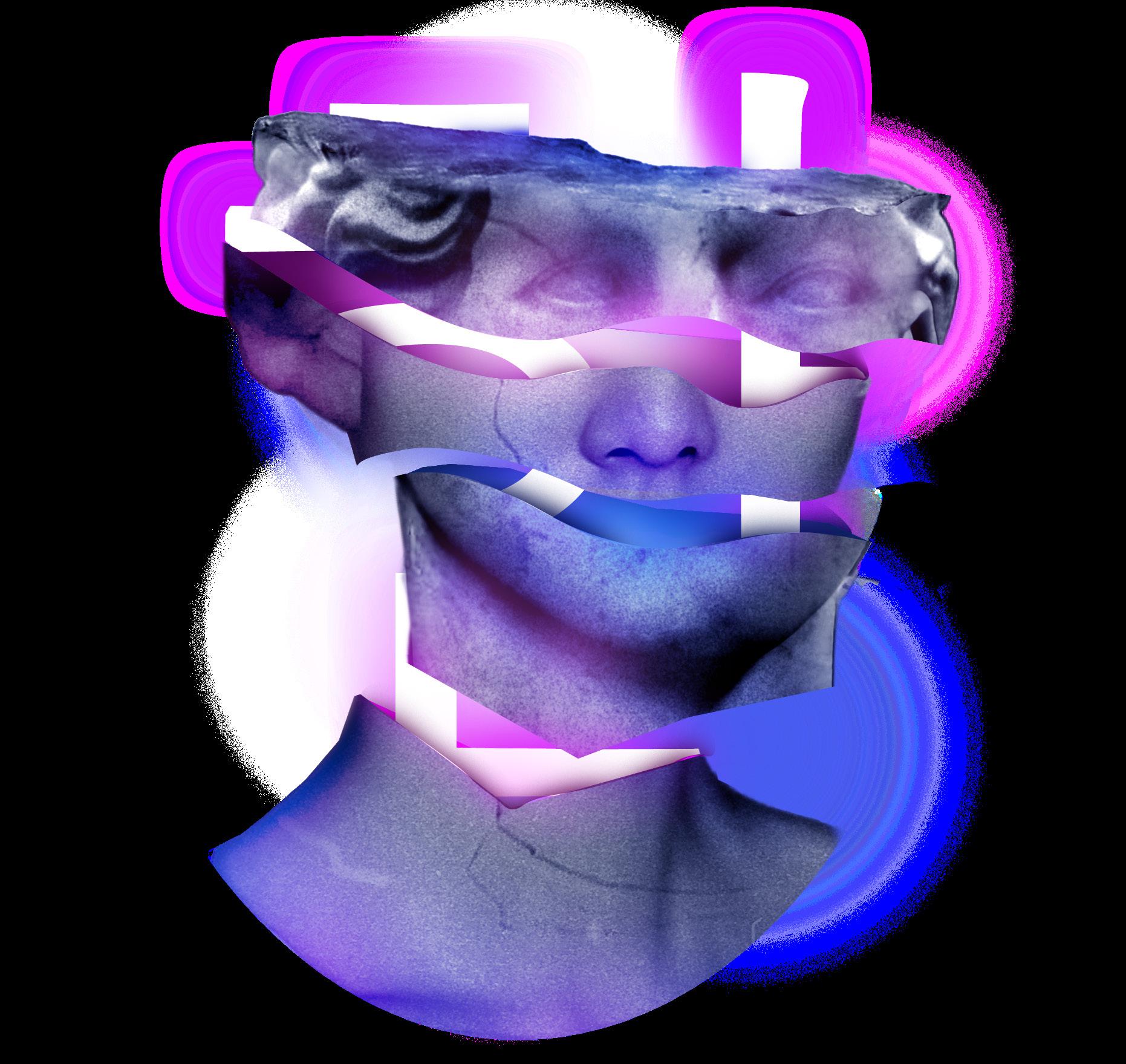
4 minute read
Han
한 BY JUSTIN DAEHO KIM
A brew of emotions so strong, so conflicting, that it is thought to hold the power to convert the natural into the supernatural. Feeling too much of it could turn a person into a ghost. A grudge. Equal parts anger and sadness shackled together with an overarching sense of hopelessness and uncertainty. A specter that torments but rarely shows itself, preferring to lurk just out of view and threaten action at any given moment. My uncle explained that this is the way that traditional Korean folklore characterizes the term 한 (Han), a word that is often argued to not translate directly into English. The shamanistic practices of ancient Korea and indirect expression of Han in modern times have left much open for artistic interpretation. Korean folk music, such as the oftquoted Arirang, and contemporary music alike are tinged with a shadow of melancholy. My mother introduced me to one of the most representative examples of Han in art – the traditional dance of Salpuri. In it, a single dancer engages with a lengthy, white piece of cloth – the manifestation of Han. The act is hauntingly beautiful, depicting the dancer undergoing the many conflicting emotions that Han brings. While at times battling and attempting to disengage with it, the dancer cannot stand being separated from the cloth. By the end, they return back to the spot at which the act began. The matter of untying oneself from Han is depicted as fruitless. My mother and father corroborated that the feeling of Han is a concoction of resentment and grief within one’s general existence that is seldom acted upon but is instead internalized. While fairly succinct, these rough detailings do not do justice to the dizzying manner in which my family members arrived at a definition for Han. Each spoke as if it had been some time since they intentionally confronted the idea of the feeling, much less put it into words. From each of the parties, several qualifications were made along the way. Resentment but not revenge, sadness but not depression. For the outline of this haunting spirit to take shape, it required active retracing and reconsideration. Though certain shared descriptors support the idea of Han being a universal feeling, the diversity in responses are indicative of how the definition becomes infused by personal experience. I find that the reason Han eludes simple translation is not because it is singularly felt by Koreans or because it attempts to bring a crowded number of emotions under one umbrella, but because it is a matter that is rarely put into conscious thought. As my uncle put it, “Han is not expressed through active grumbling.” The feeling is seldom worn on the sleeves of Koreans. While a tinge of it might be detectable in another’s tone of voice or manner of carrying his or herself, it quickly slips out of grasp for the outside observer. In the same way, those experiencing Han appear unlikely to register its presence into their stream of conscious thought. It becomes a part of existence that escapes confinement in the wide meadows of the unconscious psyche. It fades in and out of reality. A ghost. My father acknowledges the feeling of Han as similar to emotions experienced by enslaved people in the United States. Their feelings of hopelessness and frustration were forcibly repressed, causing their discomfort to materialize in ways that could not be directly vocalized. Just as Han seeps into Korean culture through music, enslaved people created a rich system of communication utilizing spiritual hymns as a way of sharing plans and releasing feelings of frustration surrounding their treatment. With this in mind, it appears that the idea of Han is not one tied intrinsically to cultural background but more so to external circumstance. Yet, it must be acknowledged that the idea is seated in the Korean identity prominently enough for it to come forward when beckoned for questioning. When a spirit acts in tangible ways that shape relationships and interactions, it is no longer a mere ghost but a demon. There is an idea that Han has the ability to be transferred through generations, that it creeps from parent to child simply through the former’s mannerisms and way of carrying themselves. Reckoning with Han has caused me to look over my shoulder with apprehension. Had a spirit been haunting me as I traversed through life without my knowledge? Has every feeling of anger, hopelessness, and grief been caressed by the invisible touch of Han? The stipulations of Han go deeper than I had initially perceived. There is much to grapple with but little to physically grasp onto. But knowing a demon’s name and its ways of working is the first step in ameliorating the curses and burdens it brings. The name is now etched into the basal level of my personal identity. Presently, I know not whether that gives it more or less power over me.
Advertisement










